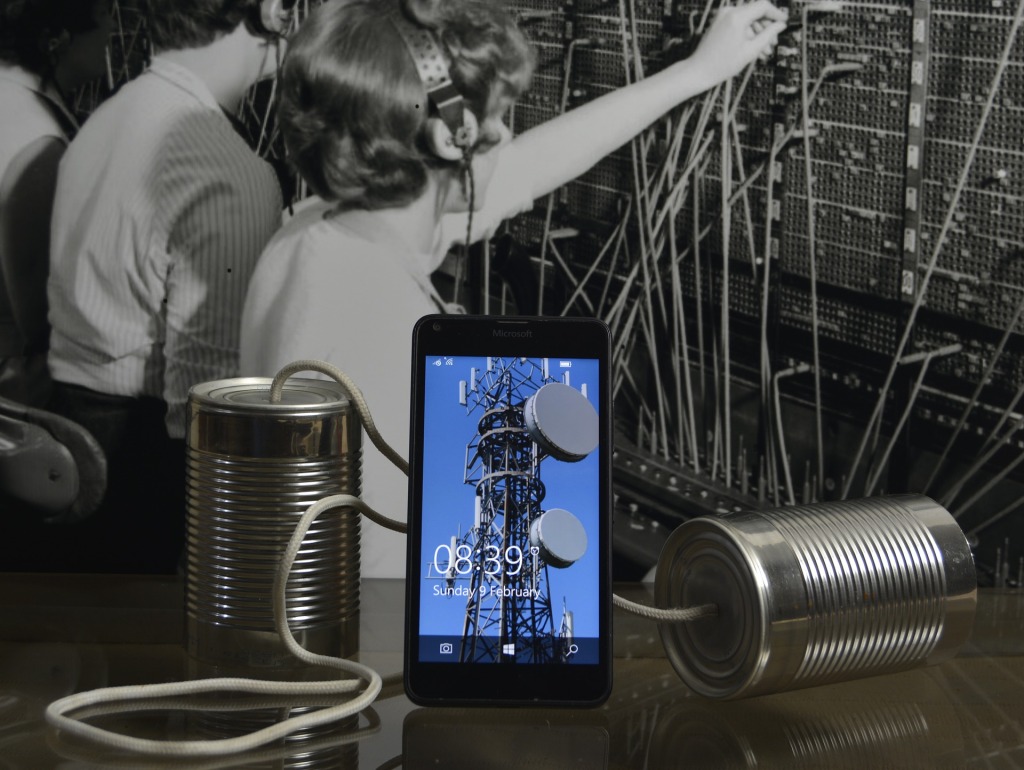
It’s happening! The virtual recruitment season has started! This year’s virtual twist adds tension to this already stressful (but exciting) time. Based on experience and guidance with the earlier-timed virtual fellowship interviews this year, we wanted to offer some advice to applicants and interviewers alike on how to optimize the virtual interview experience. What we can say for sure: it will become natural after practice with the first few interviews.
General Advice
A lot of the in-person interview advice still holds true. However, there are some interpersonal and technological nuances to consider in the virtual interview:
- Be cognizant of everyone’s time zones – look up their city’s time zone beforehand and make sure to double-check the actual start time in your time zone.
- Lights, Camera, Action – While you’re not in a movie, consider setting your (apartment) studio up like one to portray yourself in the “best light.” While looks aren’t everything, we’re all human, and appearances can be (subconsciously) important in how others perceive you. Test out your own setup and pick and choose from the following at your discretion and based on the resources you have:
- Consider buying a standard 10” ring light with an associated tripod to give you good and uniform lighting. Even if you’re just using lamps you have at home, place your light source in front of you to avoid weird shadowing. You should not have lighting (especially sunlight) behind you, as this will reduce you to a dark silhouette.
- Consider buying a 1080p webcam with a built-in microphone. Many laptops / desktops have 720p webcams built in – you may deem this sufficient, but 1080p and a high quality microphone can surprisingly make a big difference. Either way, it’s vital that you have your camera at eye level.
- Consider using Bluetooth (or wired) headphones with a built-in microphone – depending on your computer, the sound quality for you and the listeners can be much better than the speakers / built-in microphone on your computer—but this isn’t always the case, so make sure you test anything you’ll use out and compare to your other options. Bluetooth headphones make less “scratchy” noises from your clothing if you move around, but may be less reliable. No matter what: have wired headphones as a backup at least, and know how to switch from your computer’s built-in system to your different external headphones and mics: scratchy is better than no sound or an in-interview scrabble.
- Try to arrange a semi-professional background – this can be a wall with some tasteful art or furniture surrounding it. Some personal effects organized in the background can add personality / talking points to your interview. Try to avoid virtual backgrounds as they can have glitches often seem a bit weird or impersonal.
- Internet connection is important – have a reliable source of either Wi-Fi or connected Internet. Ideally, have a backup source of Internet (the ability to make your phone a hotspot) and know how to rapidly switch.
- Have either a functioning laptop or desktop – phones or tablets are acceptable in a pinch but ideally should not be your primary device, as the camera functionality has lower resolution and everything will likely be slower. Make sure those devices are silenced when you’re not using.
- “Quiet on Set” – Try to arrange for a quiet place to interview with minimal background noise, people / animals walking in the background, and minimal interruptions if possible. Have an alternative space in mind in case it turns out there’s construction or a house party in the unit upstairs on the big day. Ideally, you should have your own room. Consider using a dedicated comfortable space in your school or hospital if necessary and available.
- Dress for the Job (from head to toe)– Even though it’s in your own home and they can likely only see your top half, just dress professionally from head-to-toe as you would in person. It’s still an interview (and you never know when you need to stand up and forget you’re wearing those bright green shorts).

- Virtual Etiquette – There are a few virtual faux pas to avoid and courtesies to remember.
- Mute your mic in a big group when you’re not talking. This minimizes any background noise and allows people to hear whoever is talking. You can keep your mic unmuted in one-on-one interviews (unless there’s some loud noise in your background). Remember to unmute yourself when talking. On almost all platforms, you should see a little picture of a mic next to your name being colored in as you’re talking, indicating the volume of your speech.
- If the person trying to talk is accidentally on mute, consider politely saying, “I think you might be on mute”. It happens to everyone. Just point it out politely to move everything along. If it happens to you (and it will), just unmute yourself, apologize, and move on.
- Turn off your camera / mic when you’re not around – if you’re on a break or stepping away from your computer, just turn off your camera and mic to avoid any potential over-sharing.
- Put your preferred full name as your “screen name” in the interview. Some programs might prefer that you put your medical school / program – try to remember to do so if requested.
- Have a professional profile picture ready and uploaded into the program – this will be displayed whenever you camera is off and maybe either be requested by the program or be an opportunity to make sure you can help others put a face to a name and leave a lasting impression.
- Try to look directly / near the camera so it looks like you’re talking to the other person instead of away from them.
- Most platforms allow you to “chat” with others. Be careful what you chat to “everyone” versus selecting a certain person. Just assume everyone can see what you type.
- Many programs will likely use breakout rooms with a timer that automatically closes the breakout rooms at a certain time and move you midway through your sentence. Don’t worry – it happens to everyone. Try to thank the other person via private chat if possible; otherwise, it should be an understandable and expected part of the virtual interview.
- “Test, test” – Set up your interview room with all the tech beforehand. Try it out by recording yourself and then try having a conversation with a family member or friend and make sure you like how it appears. Ideally, have a mock interview. This will allow you to rearrange anything, troubleshoot any tech bugs, and get you comfortable with the virtual feel.
- Be prepared – One of the mantras of emergency medicine! Undoubtedly, some sort of technical problem will arise in your interview season. Don’t worry – it happens to everyone! Ideally, you can be prepared for or avoid these by having:
- Your devices (computer, camera, wireless headphones) fully charged the night before and have the chargers nearby on interview day.
- Download / update the program’s preferred platform (Zoom, WebEx, etc) and explore it a bit beforehand.
- Backup wired headphones with a built-in microphone.
- Backup camera (can be lower quality than your primary camera).
- Backup device – usually a smartphone (so you can also call the other party in the worse case scenario). Make sure to get the program coordinator’s phone number to call with any issues on the interview day.
- Put your phone on vibrate – to avoid a lot of distractions but be available for a call in case the coordinator needs to reach you due to technical issues.
- Consider having backup clothing and alternate interview room in the truly worse case scenario.
- Recognize we’re all human – We’re not robots and we’re not actors (well, some of us might be). Give each other some slack if they aren’t picture perfect, have technical difficulties, don’t look straight into the camera, or just do other normal human things. We’re looking for a good fellow physician and not the next movie star. You will interact more with them in person than online, so make decisions accordingly! Try not to judge a program or applicant by a virtual cover and try to get at their true personality / content and find the fit for you!
Despite the technical considerations, there is a lot of timeless interview advice that still holds true (maybe now more than ever) and is important for both interviewer and interviewee to follow:
- Be your best self – Be genuine. The match works well in general because people have different preferences and different fits – what works for one applicant / program might not be desirable for another. Be generally open about yourself/your program. Simultaneously, be on your best behavior – consider you / your program as constantly being watched / judged on interview day (even when the other person’s camera is off, they may be listening!).
- Write down your impressions as soon as possible – programs / applicants will inevitably blend together as the season go on. Scribble down a few notes after (or even during) the interview, but don’t let that distract you from being present!
- Be well rested, fed, and on time for interview day – it needs to be said. Life happens though. If you have any problems, let the program coordinator know so they can arrange alternatives. Take advantage of breaks and have non-messy snacks or drinks prepared.
- People will not remember everything you say, but they will remember how they felt when you spoke.
Interviewer-Specific Advice
- Be aware of applicant needs – while the interviews are virtual, the applicants are still human. Try to incorporate / respect break times. Avoid running over into an applicant’s break time or talk to them during a break (especially when their camera is off) as it will put pressure on the applicant to still be “on” during their break. In fact, explicitly tell them they should turn off their cameras / mics during breaks.

- Do your homework – set aside time beforehand to read the file. Even five minutes with an applicant’s file can yield enough info to make the interview a better experience for both of you.
- Be aware of bias – we all have biases, and this unusual season may allow them to play out in unexpected ways. This year, we are at risk of judging students negatively who don’t have access to high-speed Wi-Fi, great lighting, or fancy décor, or who have family or roommates with them who won’t or can’t be quiet. Remembering to set aside any negative thoughts based on those external factors will help avoid reinforcing systemic/institutional inequalities.
Applicant-Specific Advice
Here is some virtual and general interview advice for applicants to consider!
- Know thyself – Make sure you are prepared to answer any questions about anything your application (even that one research project you did in undergrad).
- Think about your “narrative” – you don’t have to know exactly where you’ll be in 5 years, but think about your journey so far and how you’ve gotten to the point where you’re applying to this residency. Try to find a common theme for yourself and your application – it will make your answers easier and stronger.
- If you have any red flags, be prepared to explain / talk about them.
- Think about your current / future projects that might not be in your application – this can be something interesting to add to the conversation, especially when the interviewer says “anything else I should know about you?”
- Think about what your interests are in a program – these will likely change as you go through the interview season, but consider location, patient population, procedure allocation, volume, leadership, faculty / resident accomplishments, associated fellowships, 3 versus 4 year, associated medical school, other consultants, trauma / pediatric / distribution of “esoteric versus bread-and-butter pathology” experience, cost-of-living, benefits, and much more! Some things are more important to an applicant than others. Think carefully about the aspects of a program and why they are / aren’t important to you. Ultimately, a lot of it comes down to “fit”, but there may be some deal-breakers that you should consider.
- Do your homework
- Anticipate common questions – Note: this is by no means an exhaustive list, specific to any program, or a reflection of the authors’ programs’ questions, but a list of common questions that the authors have stumbled across in their experience or research.
- Tell me about yourself.
- Tell me more about [something on your CV].
- Why EM?
- Tell me about your most interesting case / interesting ED case / difficult patient.
- Describe a time when you worked effectively under pressure.
- Describe a mistake you made and how you handled it.
- Describe how you handled a conflict.
- What is one of your weaknesses?
- What unique contributions / skills would you bring to this residency?
- What are your 5- or 10-year goals?
- Why did you apply to this program?
- Anything else to add?
- Anticipate common questions – Note: this is by no means an exhaustive list, specific to any program, or a reflection of the authors’ programs’ questions, but a list of common questions that the authors have stumbled across in their experience or research.
- Read the program’s website / materials and have questions ready – you should know everything that is publically posted on the program website and have 3-5 nuanced questions to ask either a faculty or resident interviewer. You will be asked if you have any questions and they shouldn’t be easily looked up questions (like “is your program a 3- or 4-year program”), but more nuanced (like “I see you have 12 weeks of elective in your residency, what have been some of your residents’ favorite electives?”). This will show that you are interested in the program and taking it seriously enough to read about them.
- Send thank you emails – interviews are a huge investment for a program and you should assume it is expected etiquette that you send thank you emails to all your interviewers and the coordinator(s). Many may not respond to you (and many may not realize / care you didn’t send one), but it is a sign of respect / gratitude and some people might take the absence of a thank you email very seriously.
- Take time to reflect – you will be bombarded with information on the interview day. Take the time immediately after to reflect on your notes and jot down your impressions on a centralized document. Consider tentatively ranking programs as you go along, but keep an open mind and re-review programs as you go through the season. This will hopefully help you make a decision when you’re making your rank list. Always feel free to reach out to the program for clarifications or more questions later on in the season.
We hope this was helpful information to think about! Good luck on this crazy but exciting adventure!
Daniel Ichwan, MD – UCLA RR/OV R4 and Chief Resident
— edited by Shannon Moffett, MD @BrickCityEM in conjunction with CORD ASC-EM (advising students committee in emergency medicine)
